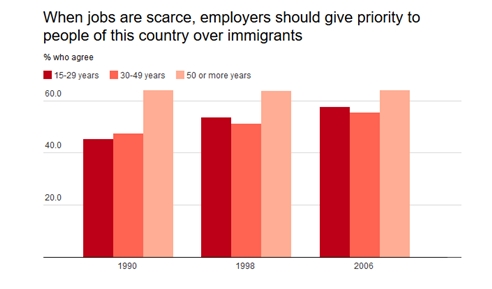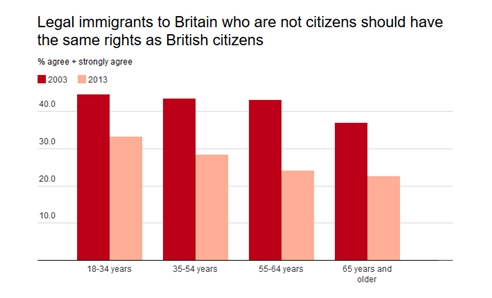 Higher levels of education do not mean higher levels of tolerance
Higher levels of education do not mean higher levels of tolerance
From an article by Jan Janmaat, UCL
Education is said to make people more tolerant by enhancing their knowledge and reasoning skills. This should help people to see through prejudiced claims and dismiss irrational fears about those who are culturally different. Schools and universities also enhance tolerance by emphasising it as a virtue. The longer individuals stay in the education system, the more they are exposed to tolerance as a “core value” – and the more likely they are to internalise it.
So does a person’s tolerance rise with their education level? Are higher educated people more likely to accept racial or ethnic minorities? As the generations become better educated and enlightened, does society become more tolerant?
The Institute of Education at University College London recently conducted research and found that while younger people may have become increasingly tolerant of sexual fluidity and racial and cultural diversity, they are growing less positive about immigrants.
In the 1990s and 2000s, there was a steady growth in the number of people especially in younger age groups in Britain who believe that it is right for employers to discriminate against immigrants when recruiting new staff:

Source: World Values Study, waves 2, 3 and 5, results pertaining to Britain
And in more recent times, there has been a huge decline in the number of people who believe legal immigrants in Britain should have the same rights as British citizens:

Source: British Social Attitudes, Wave 2003 and 2013
So it seems that the more educated British society has become, the lower the levels of acceptance towards immigrants.
This could be due to:
-
having to compete for jobs with better or equally well-educated migrants
-
loss of status as higher education levels become more common
-
lack of social mobility - unable to move to other job markets themselves therefore thinking that people are coming to take 'their' jobs
Educational expansion is not the panacea to all of society’s problems.
Read the full article here.
Retweet about this article:
From an article by Jan Janmaat, UCL, 03/01/2017